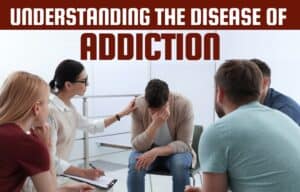
Understanding the Disease of Addiction
Many a time, a family brings their patient to me, explaining how their patient despite the best of their efforts is not able to quit….

Most people believe that they can change or control the outcome of their lives if they have one enigmatic ability, the ability to use “Willpower”.
Willpower: the one that has the capacity to become either a boon or bane and may have often led us through the miseries of life unrelentingly.
According to American Psychological Association, willpower can be defined as:
1. The ability to delay gratification, resisting short-term temptations in order to meet long-term goals.
2. The capacity to override an unwanted thought, feeling, or impulse.
3. The ability to employ a “cool” cognitive system of behavior rather than a “hot” emotional system.
4. Conscious, effortful regulation of the self by the self.
5. A limited resource capable of being depleted.
With more self-control we would all eat right, exercise regularly, sleep on time, avoid drugs and alcohol, save for retirement, stop procrastinating, and achieve all sorts of noble goals. The picture painted is pretty.
“But when it comes to the treatment of addiction why is willpower not enough to change the course of illness? Addiction is not a character flaw and is not caused by lack of willpower. “
Addiction is a physiologically and psychologically based illness with complex and multi-layered environmental triggers that affects the brain in such ways that it impairs mood, judgment, and problem-solving skills.
Let’s think about it a little differently, imagine there is a person named Rahul. A fine young man with a stable job and family but he stresses over his work a little too much. On one sad day, Rahul gets heart attack and is rushed to hospital. He undergoes his treatment and is on bed rest in the hospital when suddenly his wife arrives and says,
“Have some willpower Rahul, will you? Make your mind stronger now, get out of the bed and get on with your job and responsibilities.”
She sounds a little bizarre, doesn’t she?
The point here that needs to be understood from this little anecdote is that, addiction is just like any other disease. It is not caused by lack of willpower and hence, a person cannot stop drinking alcohol or abusing drugs with willpower alone.
Like diabetes, cancer, and heart disease, addiction is caused by a combination of behavioral, psychological, environmental, and biological factors.
Genetic risk factors account for about half of the likelihood that an individual will develop addiction and when that happens, once the brain has been changed by addiction, that choice or willpower becomes impaired.
Therefore, a patient of addiction needs a comprehensive and thorough care program that includes therapies, 12-Step support, treatment for co-occurring mental health conditions, and holistic services designed to promote healing of the mind, body, and spirit.
Although lack of willpower and determination does not lead a person towards the disease of addiction but this does not mean that willpower altogether is irrelevant.
It can help the patient to walk in for his treatment for addiction and get himself admitted in an inclusive rehabilitation program, and once the groundwork of sobriety has been laid, willpower can help the patient to continue towards his restitution goals by staying as an active participant of the recovery program.
So, here the choice is yours whether you want to consciously use your willpower for your treatment and start with a life of sobriety, or just play with the idea that your willpower in itself will be enough to control your addiction.

Many a time, a family brings their patient to me, explaining how their patient despite the best of their efforts is not able to quit….

Stress is a functional part of life. Without stress, we might not be able to perform actively…

We all know that exchanging information is communication but are we effective at it? …

In India, it is quite common for us to take care of our parents…
WhatsApp us